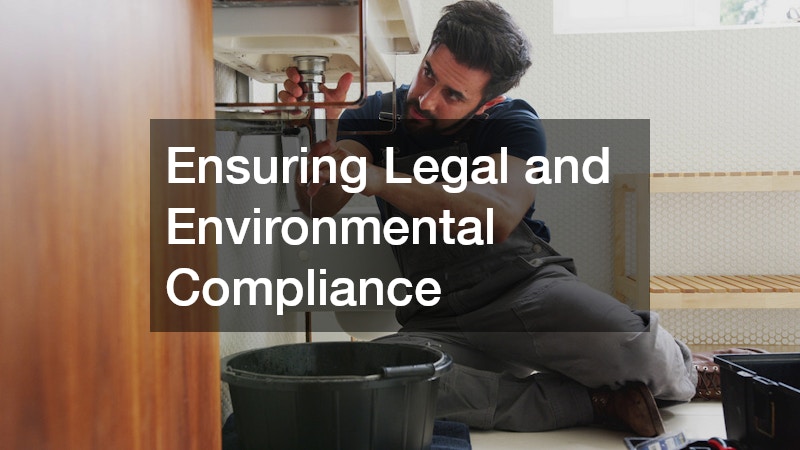In the quest for a well-functioning home, choosing the right septic installers is a critical decision that can affect the long-term health of your system. This guide aims to provide homeowners with essential insights into selecting a reliable septic installer, ensuring a smooth installation process and a durable septic system.
What to Look for in a Septic Installer
Researching and Evaluating Credentials
When selecting a septic installer, one cannot overstate the importance of verifying licenses and certifications. A licensed installer is typically more familiar with local codes and standards, reducing the risk of non-compliance.
Additionally, certifications from reputable organizations can further indicate the installer’s dedication to quality and expertise.
Checking references and reviews can provide invaluable insights into the installer’s track record with past customers. Engaging previous clients to understand their satisfaction levels and any issues encountered can prevent future headaches. Online platforms and local community boards can also provide candid feedback, aiding in the elimination of less reputable options.
A methodical examination of credentials not only ensures competence but also safeguards against potential legal issues. Many regions mandate specific licenses for septic work, and entrusting installation to a certified professional can avert costly fines. Verification additionally provides peace of mind, knowing your system adheres to all necessary regulations.
Experience and Expertise in Septic Installation
Experience in septic installation translates to familiarity with a wide range of issues that might arise during the project. Installers with varied project histories tend to navigate complexities more efficiently, resulting in high-quality outcomes. As every property is unique, seasoned professionals can tailor solutions best suited to individual site conditions.
Expertise not only affects the speed of installation but also contributes to the system’s longevity. An experienced installer will ensure proper installation, reducing the likelihood of system failures and costly repairs down the line. Their ability to foresee potential issues and address them proactively can significantly enhance the life expectancy of your septic system.
By choosing a contractor with expertise, a homeowner can gain valuable advice on system maintenance and optimization. Knowledgeable installers can offer insights into local environmental conditions and their impacts on septic system performance. Ultimately, expertise in septic installation assures both efficiency and future reliability.
Septic Installation Cost
Understanding Cost Factors
Numerous factors influence the cost of septic installation, making it essential for homeowners to understand these variables. System size is a primary cost determinant, with larger systems naturally incurring higher expenses due to increased materials and labor. Site preparation, including excavation and logistical considerations, also significantly impacts the final price.
Geographical location can affect installation costs due to varying local statutory requirements and material availability. Some areas might have stricter regulations requiring additional procedures or approvals, contributing to the overall budget. Additionally, soil type plays a pivotal role, as difficult terrain or rocky foundations could necessitate more intricate installations.
Budgeting and Obtaining Quotes
Effective budgeting for septic installation begins with a clear understanding of potential costs and necessary financial allocation. Homeowners should consider obtaining multiple quotes to facilitate price comparisons and avoid financial surprises. It’s advisable to seek comprehensive quotes detailing every aspect of the project, from materials to labor and auxiliary services.
Quotes should always include a breakdown of costs, offering transparency and enabling homeowners to question any unfamiliar items. While negotiating, ensure that all potential add-ons or unexpected developments are discussed to avoid costly last-minute adjustments. A well-negotiated contract can lead to significant savings while maintaining the desired service quality.
Red Flags When Choosing a Septic Installer
Signs of Unqualified Installers
The presence of unqualified installers poses significant risks to both project success and long-term system viability. A primary red flag is the lack of appropriate licenses or certifications, which may indicate an installer’s inadequate qualifications or experience. Unqualified individuals often overlook critical installation aspects, leading to potential system failures.
Another red flag is non-transparent pricing, where an installer provides vague or excessively low estimates without clarifying the scope of work. Such tactics can hint at hidden costs or a lack of experience in accurately assessing job requirements. Furthermore, poor communication, such as unresponsiveness or reluctance to answer questions, suggests potential organizational and operational issues.
Ensuring Legal and Environmental Compliance
Ensuring an installer’s compliance with legal and environmental standards is integral to a successful septic installation. Failure to comply with local, state, or federal laws can result in significant penalties and may necessitate extensive modifications to your system. Legal compliance not only avoids fines but also ensures that your system meets all necessary health standards and regulations.
Environmental responsibility is equally crucial, as improper installation can lead to groundwater contamination and other ecological issues. Ensuring compliance with environmental regulations prevents harmful impacts on your surrounding land and community. A qualified installer will be well-versed in these regulations, having a proven track record of responsible practices in their installations.
Choosing the right septic installer is crucial for the longevity and performance of your septic system. By understanding what to look for, how to manage costs, and recognizing potential red flags, homeowners can make informed decisions that will serve their property for years to come. Proper planning and diligence ensure a smoothly functioning system that aligns with both economic and environmental goals.




